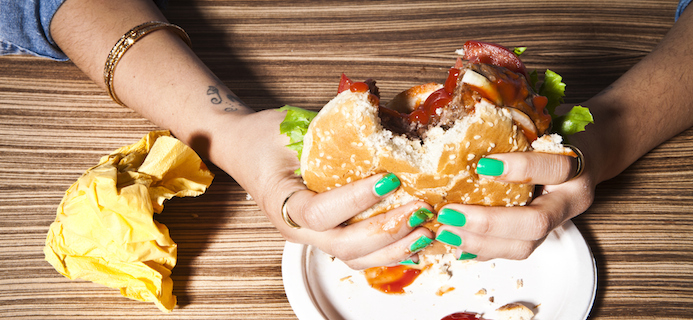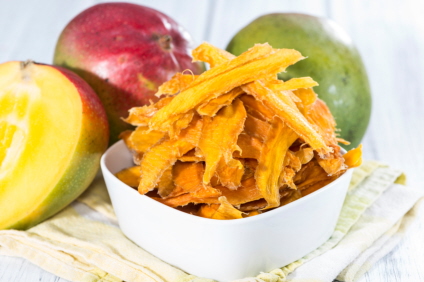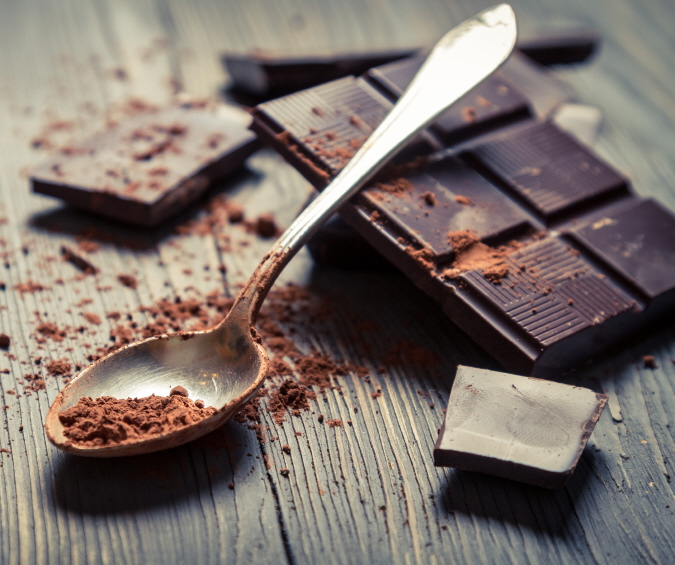Calmista blogger Charlotte Watts has practical advice for freeing yourself from emotional eating
When we are suddenly confronted with a person, event or feeling that shoots us out of our comfort zone, for many of us the first impulse is to turn to food; often sweet and often not what we would choose in our long-term health plan. Here we explore the whys and hows to recognise and free ourselves from these exhausting and frustrating circles of inner conflict.

to eat over what you want?
What we put in our mouths is one of the few things we can control in life and it is an act of gratification to turn to eating when we feel this is not being provided by our external world. Touching our mouths engages the calming, parasympathetic nervous system and the sense of taste, pressure and being ‘filled up’ (yes, I have noticed that all sounds pretty sexual too..) makes food a first choice route when comfort from the world or others seems scarce.
Touching our mouths engages the calming, parasympathetic nervous system and the sense of taste, pressure and being ‘filled up’ (yes, I have noticed that all sounds pretty sexual too..)
What do you want?
It is great to really know the nature of the beast and ask yourself, when I’m really annoyed/sad/upset/scared/the whole shebang, what do I want? What feels like an absolute necessity to put in my mouth right there and then?
Sweet cravings
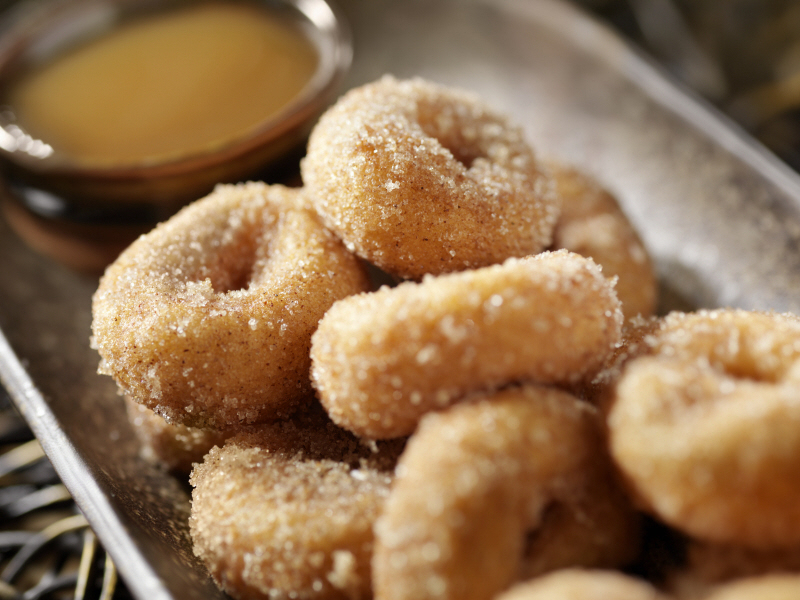
Savoury urges
Then there are the savoury seekers who crave salty snacks that also deliver an excitory punch, theorised to be caused by one or more of these; low zinc levels, adrenal fatigue and need for sodium that’s been 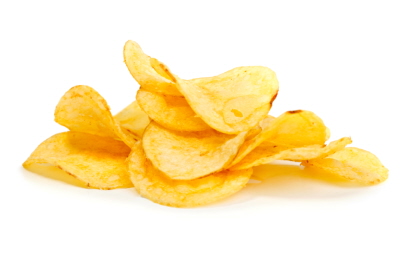
Your mind-body is working on short-term survival mode when it senses the danger of stress.
What do you really need?
The nature of all of these impulses is towards self-medication; our desires led by our body chemistry trying to find equilibrium when the physical and mental shock of stress suddenly throws it off-whack. These choices are not a long-term plan and do not serve your body well in the long run but even if your rational mind knows that, your body mechanisms don’t care. Your mind-body is working on short-term survival mode when it senses the danger of stress.
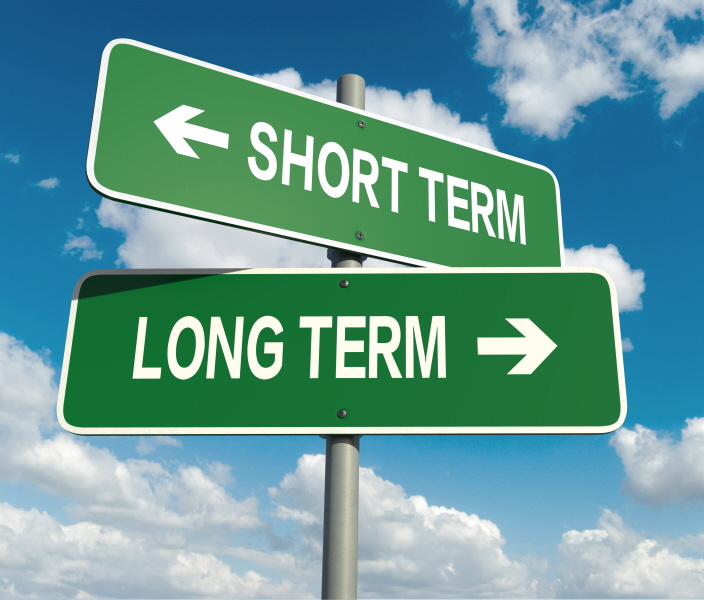
Knowing these urges are our biochemistry overruling our rational mind is extremely helpful information. It lets you off the hook for all of those judgements we can throw at ourselves like ‘I have no willpower’ or ‘why am I self-sabotaging, again’. Stepping back from that immediate response and considering how we can set a long-term scene, helps us relieve the intensity of the response and retain some of the reflective part of ourselves that can still make a rational decision.
Recognising the patterns
If you’re having reactive ‘wants’, what your body actually needs is a level of sustenance that it feels it can rely on to provide the energy it might need to deal with anything that comes along. Less than that and we’re left with cravings that are there to make up a perceived deficit. That’s not to say we won’t ever crave the things we crave just because we really like them and they give us a quick happy, but we will be able to feel a whole lot more in control and not like food is holding the reins.
If you’re having reactive ‘wants’, what your body actually needs is a level of sustenance that it can rely on to provide the energy
Three ways to control the cravings
1) ‘Protein for breakfast’ may well be etched on my tombstone, but I really cannot say it enough. This is the benchmark of satisfaction for our omnivorous biochemistry (yes, even if you are veggie or vegan) as we don’t get that full signal to the brain from carbohydrates alone. Eggs, nuts, fish, meat (free-range please) or good quality protein powders are a vital start to breaking craving cycles.
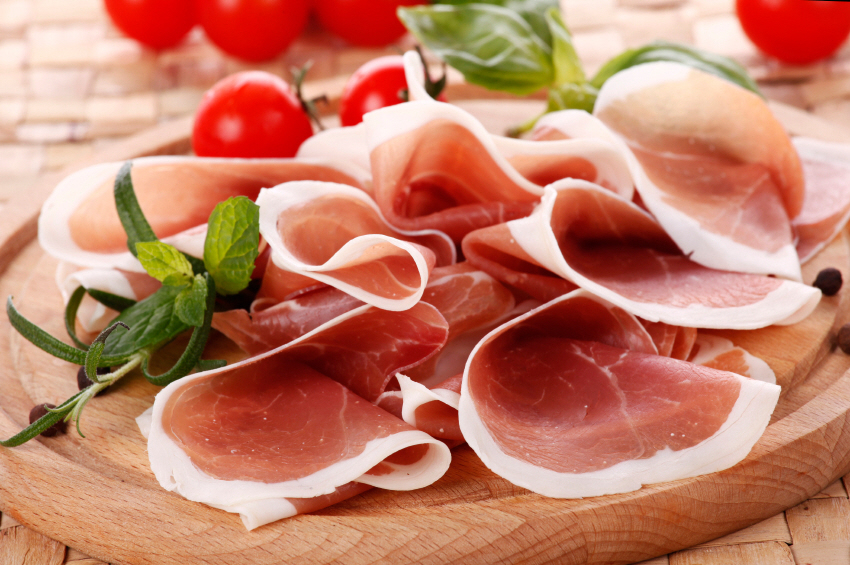
2) Don’t leave eating until after you feel a blood sugar crash. If you’re only making time for food when you feel dizzy, spaced, irritable or totally drained, you’re leaving it too late and living in reactive mode. Prioritise regular meals that satisfy.
3) Eat satisfying meals The self-soothing oral gratification route may well be pleased by advice to eat little and often, but that can create an near obsession with constantly filling our faces and not getting used to being a bit hungry or a bit empty. Eating a satisfying meal can start to liberate you from a constant seeking mentality that we can then tend to give in to when we lose our cool.
Protein for breakfast is a vital start to breaking craving cycles.
Limit the damage
Cake or biscuit monsters – stock up on sweet alternatives that can hit the mark when your inner being is really screaming for a sweet hit. The best of the lot are:
- Dried mango, prunes or figs.
- Fruit – bananas can hit the spot as they also help raise the brain chemicals serotonin (for mood( and GABA (for soothing).
- Anything with unsweetened coconut – provides the sweet taste with satisfying and healthy fats.
The chocoholic – 40g of dark chocolate a day has been shown to help people cope with stress. Dark chocolate covered nuts also provide the creaminess you may miss if dairy chocolate is your thing, with the healthy fats and protein helping to satisfy appetite.
40g of dark chocolate a day has been shown to help people cope with stress
Salt-seekers – add some good quality rock salt to food to satisfy your needs and prioritise making space in your life to give your adrenal glands a break from pumping out tiring stress hormones. You can add a little salt to raw, unsalted nuts like almonds, cashews or Brazils. Seaweed or herb salt can add supportive minerals.
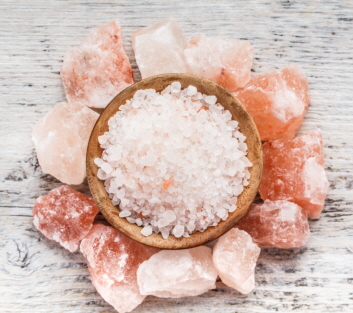
Other Calmista blogs by Charlotte Watts
5 Steps to making resolutions stick
3 ways to stay calm this Christmas
5 ways to resist a Christmas sugar blowout
8 easy ways to really soothe stress
Charlotte Watts is a nutritionist and yoga teacher who focuses on how nutrition and yoga can meet to help people cope with the demands we face in the 21st century. Charlotte’s new book The De-Stress Effect: Rebalance Your Body’s Systems for Vibrant Health and Happiness,(Hay House) is out this March and is now on pre-order from Amazon. You can book Yoga Retreats with Charlotte 2015 held in the UK on weekends and South-West France in June. For health resources and information on classes, workshops, retreats and please visit Charlotte’s website. You can follow Charlotte on: Facebook Linkedin Twitter
Like this article? Sign up to our newsletter to get more articles like this delivered straight to your inbox.



